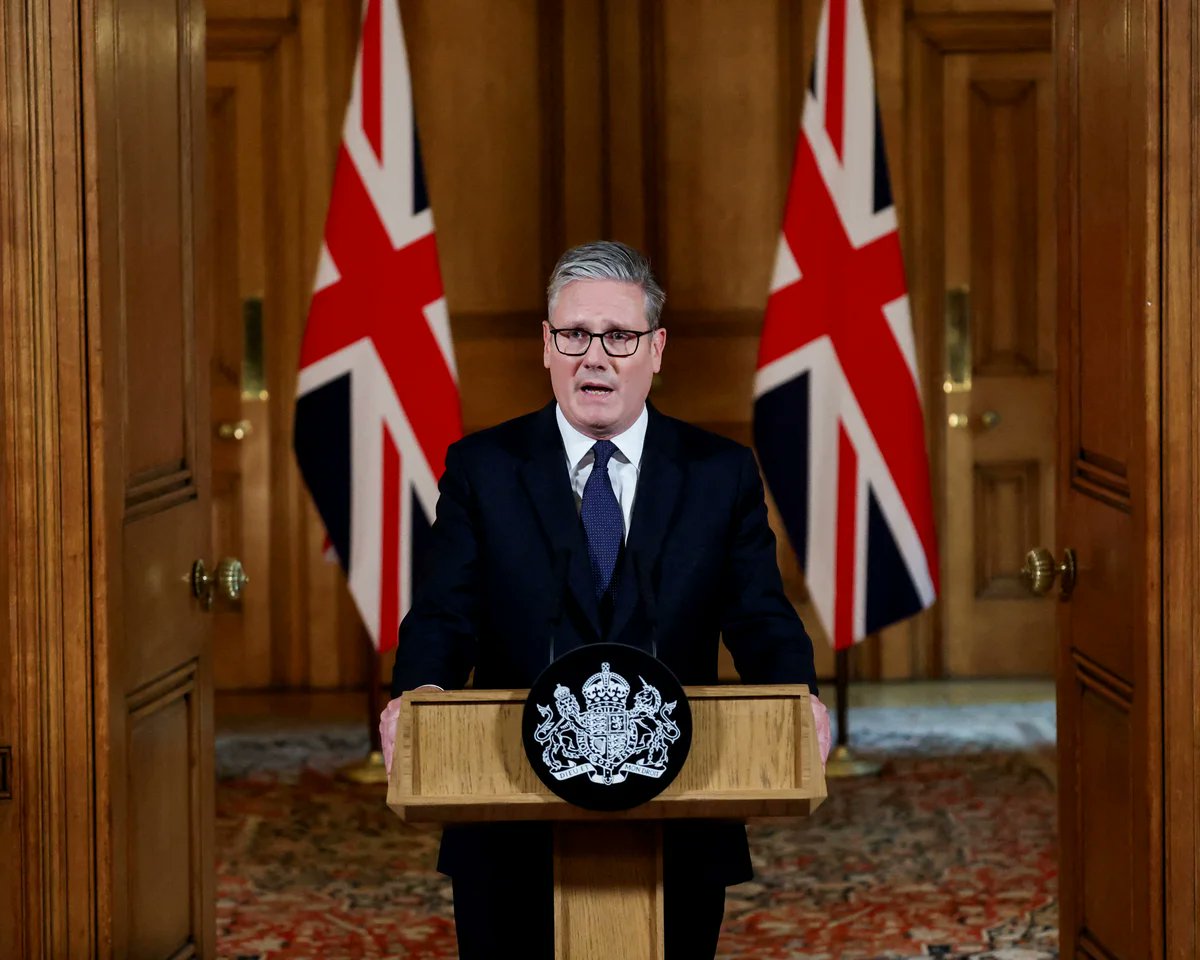
Shockwaves from Westminster: UK Set to Recognize Palestine by September If Israel Halts Gaza Assault
In a dramatic turn of global diplomacy, the British government has announced its intention to officially recognize Palestine as a sovereign state by September—contingent on a set of strategic conditions being met by Israel, primarily the immediate cessation of military operations in Gaza and a concrete agreement to a long-lasting
In a dramatic turn of global diplomacy, the British government has announced its intention to officially recognize Palestine as a sovereign state by September—contingent on a set of strategic conditions being met by Israel, primarily the immediate cessation of military operations in Gaza and a concrete agreement to a long-lasting ceasefire. The news, confirmed by Daily Trust Nigeria, has sent ripples through the international community, igniting fresh debates around the long-standing Israeli-Palestinian conflict and signaling a potential shift in Western policy towards the region.
This development marks one of the most significant geopolitical announcements from the United Kingdom in recent years, and it comes at a time when the humanitarian crisis in Gaza continues to deepen. For months, images of destruction, displaced families, and mounting civilian casualties have poured out of the besieged enclave, drawing sharp condemnation and urgent calls for de-escalation. Now, the British government appears poised to leverage diplomatic recognition as a tool for peace, using the weight of statehood recognition to pressure Israel into halting its operations and returning to negotiations.
According to senior officials in Westminster, the proposal is part of a broader recalibration of the UK\'s Middle East strategy. Under increasing pressure from domestic lawmakers, international allies, and human rights organizations, British foreign policy is moving toward a more balanced position that acknowledges the aspirations of the Palestinian people. A formal recognition of Palestinian statehood would be a historical milestone—one that could redefine the UK\'s role as a global actor in the peace process and potentially inspire other Western nations to follow suit.
The conditions attached to the recognition are clear: Israel must end its current offensive in Gaza, a campaign that has already resulted in thousands of casualties and widespread infrastructure damage, and commit to a verifiable ceasefire agreement. British officials insist that these demands are not only reasonable but necessary for the success of any lasting diplomatic solution. They argue that recognizing Palestine without first ensuring stability would be counterproductive, risking further violence and undermining any hopes for sustainable peace.
The Israeli government, however, has responded with caution and skepticism. Prime Minister Benjamin Netanyahu\'s administration has long opposed unilateral recognitions of Palestinian statehood, viewing them as premature and counterproductive. Israeli officials argue that such recognitions reward what they describe as extremist elements within Palestinian leadership and ignore the complex security threats Israel faces. In Tel Aviv, the announcement from London has been met with quiet alarm, with some insiders fearing it may embolden Hamas or derail ongoing security operations.
Meanwhile, Palestinian leaders have welcomed the British declaration with cautious optimism. Mahmoud Abbas, President of the Palestinian Authority, praised the UK’s decision as “a courageous and moral step toward justice.” He urged the international community to hold Israel accountable and emphasized the importance of diplomatic pressure in ending what he described as decades of occupation and systemic discrimination. In Ramallah and beyond, news of the UK’s intention sparked celebrations, with many viewing it as a long-overdue recognition of Palestinian identity and sovereignty.
The timing of the British government’s announcement is significant. It comes as the world watches an increasingly fractured global order, where traditional alliances are being tested and long-standing conflicts are being revisited. With the United States still largely perceived as a staunch supporter of Israel, the UK’s move positions it as a possible mediator and a counterbalancing force in Middle Eastern affairs. British Prime Minister Rishi Sunak has reportedly been in quiet consultation with European counterparts and Arab leaders in recent weeks, laying the groundwork for a potential coalition of countries that may jointly recognize Palestine if the September conditions are met.
Yet, the road to recognition is far from straightforward. Experts warn that the British move, while diplomatically bold, is fraught with risks. Domestically, the Conservative government faces divisions within its own ranks, as pro-Israel MPs clash with colleagues advocating for a more humanitarian-driven foreign policy. Internationally, the UK must navigate complex alliances and avoid alienating key strategic partners. There is also the looming question of enforcement—what happens if Israel does not comply with the stipulated conditions? Will the UK proceed with recognition regardless, or will it retreat under diplomatic pressure?
Adding to the uncertainty is the situation on the ground in Gaza. The humanitarian crisis continues unabated, with reports of critical shortages in food, medicine, and clean water. Aid agencies warn that without an immediate ceasefire, the enclave risks slipping into an even deeper catastrophe. The British government has pledged additional humanitarian assistance to Gaza as part of its broader diplomatic initiative, but aid workers stress that material support cannot substitute for political action.
For many Palestinians, the promise of recognition is a symbolic victory after decades of struggle, displacement, and statelessness. It represents international acknowledgment of their right to self-determination and existence as a people. However, some remain skeptical, recalling past promises that failed to materialize. “We’ve seen many declarations before,” said Lina, a university student in Gaza City. “We will believe it when we see the flag of Palestine flying in embassies around the world.”
As September approaches, all eyes are now on Israel’s next moves and whether it will heed the call for peace or double down on its military strategy. The coming weeks will be crucial, not just for Palestinians and Israelis, but for the global community’s credibility in upholding international law and human rights. The UK has taken a stand—one that could either ignite a new era of diplomacy or deepen the divisions that have plagued the region for generations.
Whatever the outcome, one thing is certain: history is unfolding, and the decisions made in the halls of Westminster and Jerusalem may determine the fate of millions. The world is watching, and the countdown to September has officially begun.
Share this post
Related Posts

Lions of Teranga Roar Again: Senegal Crowned AFCON 2025 Champions After Epic, Controversial Final Against Morocco
Senegal are once again kings of African football after edging Morocco in a dramatic, emotionally...

“I’m Literally Stuck and They Are Not Remorseful”: Actress Bolaji Ogunmola Slams Airline Over Repeated Cancellations That Left Her Stranded
Nollywood actress and filmmaker Bolaji Ogunmola has sparked a fresh wave of conversation around the...

AFCON Drama Meets the Pulpit as Pastor Adeboye Jokes About Failed Prophecy, Urges Believers to Choose Wisdom Over Sensation
The intersection of football, faith, and public prophecy took centre stage in Nigeria this week...